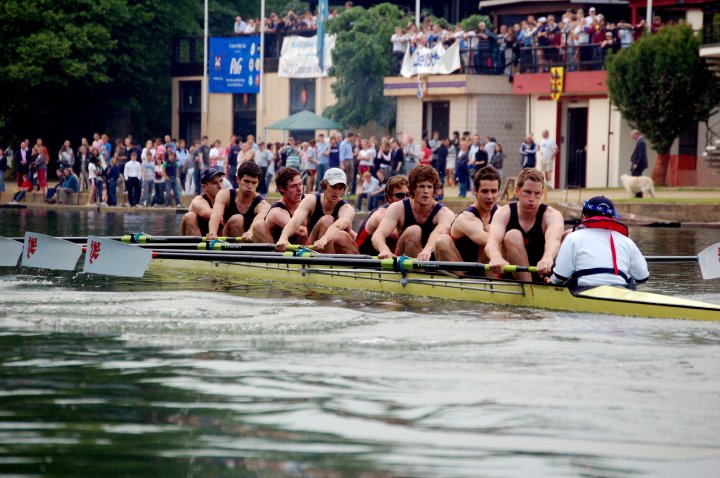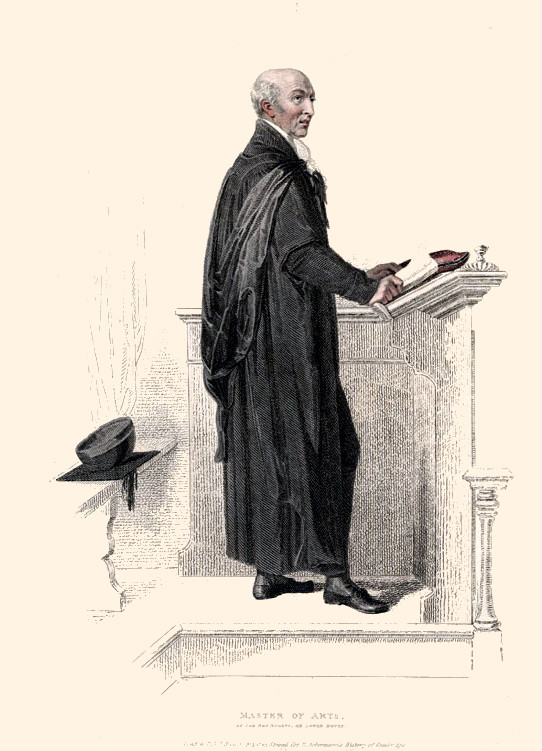|
Antony Garnet
Antony Garnet was an English academic during the 16th-century: he graduated B.A. from Balliol College, Oxford in 1547 and M.A. in 1551; and was Master of Balliol from 1560 to 1563. In 1557, when he was still a Fellow A fellow is a title and form of address for distinguished, learned, or skilled individuals in academia, medicine, research, and industry. The exact meaning of the term differs in each field. In learned society, learned or professional society, p ... of Balliol College, he donated a silver spoon to the college's chapel. References 16th-century English educators Alumni of Balliol College, Oxford Masters of Balliol College, Oxford {{UOxford-stub ... [...More Info...] [...Related Items...] OR: [Wikipedia] [Google] [Baidu] |
16th-century
The 16th century began with the Julian year 1501 (represented by the Roman numerals MDI) and ended with either the Julian or the Gregorian year 1600 (MDC), depending on the reckoning used (the Gregorian calendar introduced a lapse of 10 days in October 1582). The Renaissance in Italy and Europe saw the emergence of important artists, authors and scientists, and led to the foundation of important subjects which include accounting and political science. Copernicus proposed the heliocentric universe, which was met with strong resistance, and Tycho Brahe refuted the theory of celestial spheres through observational measurement of the 1572 appearance of a Milky Way supernova. These events directly challenged the long-held notion of an immutable universe supported by Ptolemy and Aristotle, and led to major revolutions in astronomy and science. Galileo Galilei became a champion of the new sciences, invented the first thermometer and made substantial contributions in the fields of phy ... [...More Info...] [...Related Items...] OR: [Wikipedia] [Google] [Baidu] |
Bachelor Of Arts
A Bachelor of Arts (abbreviated B.A., BA, A.B. or AB; from the Latin ', ', or ') is the holder of a bachelor's degree awarded for an undergraduate program in the liberal arts, or, in some cases, other disciplines. A Bachelor of Arts degree course is generally completed in three or four years, depending on the country and institution. * Degree attainment typically takes five or more years in Argentina, Brazil, Chile, and Peru. * Degree attainment typically takes four years in Afghanistan, Armenia, Azerbaijan, Bangladesh, Brunei, Bulgaria, Canada (except Quebec), China, Egypt, Finland, Georgia, Ghana, Greece, Hong Kong, Indonesia, India, Iran, Iraq, Ireland, Jamaica, Japan, Kazakhstan, Kenya, Kuwait, Latvia, Lebanon, Lithuania, Malaysia, Mexico, Mongolia, Myanmar, Nepal, the Netherlands, Nigeria, Pakistan, the Philippines, Qatar, Russia, Saudi Arabia, Scotland, Serbia, Singapore, South Africa, South Korea, Spain, Sri Lanka, Taiwan, Thailand, Turkey, Ukraine, the United S ... [...More Info...] [...Related Items...] OR: [Wikipedia] [Google] [Baidu] |
Balliol College, Oxford
Balliol College () is a constituent college of the University of Oxford. Founded in 1263 by nobleman John I de Balliol, it has a claim to be the oldest college in Oxford and the English-speaking world. With a governing body of a master and around 80 fellows, the college's main buildings are located on Broad Street with additional buildings to the east in Jowett Walk and Holywell Manor. As one of the larger colleges of Oxford University, Balliol typically has around 400 of both undergraduates and graduates. The college pioneered the Philosophy, politics and economics, PPE degree in the 1920s. Balliol has #People associated with Balliol, notable alumni from a wide range of disciplines. These include 13 Nobel Prize winners and four List of prime ministers of the United Kingdom by education, British prime ministers. History and governance Foundation and origins Balliol College was founded in about 1263 by John I de Balliol under the guidance of Walter of Kirkham, the Bishop of Du ... [...More Info...] [...Related Items...] OR: [Wikipedia] [Google] [Baidu] |
Master Of Arts (Oxbridge And Dublin)
In the universities of University of Oxford, Oxford, University of Cambridge, Cambridge, and University of Dublin, Dublin, Bachelor of Arts, Bachelors of Arts (BAs) are promoted to the rank of Master of Arts (MA), typically upon application after three or four years after graduation. No further examination or study is required for this promotion, which is a mark of seniority rather than an additional postgraduate qualification. According to the formula of ''ad eundem gradum'', the graduates of the Universities of Oxford, Cambridge, and Dublin are eligible to apply to incorporate and be granted equivalent academic degrees at any of the other two universities, provided that they wish to register for such a degree or are members of the academic staff; they also pay a required fee. The example of the "Steamboat ladies" (roughly 720 women graduates of both Oxford and Cambridge who received Dublin academic degrees) is one of the most popular incidents of incorporation. While not an earn ... [...More Info...] [...Related Items...] OR: [Wikipedia] [Google] [Baidu] |
Fellow
A fellow is a title and form of address for distinguished, learned, or skilled individuals in academia, medicine, research, and industry. The exact meaning of the term differs in each field. In learned society, learned or professional society, professional societies, the term refers to a privileged member who is specially elected in recognition of their work and achievements. Within institutions of higher education, a fellow is a member of a highly ranked group of teachers at a particular college or university or a member of the governing body in some universities. It can also be a specially selected postgraduate student who has been appointed to a post (called a fellowship) granting a stipend, research facilities and other privileges for a fixed period (usually one year or more) in order to undertake some advanced study or research, often in return for teaching services. In the context of medical education in North America, a fellow is a physician who is undergoing a supervised, ... [...More Info...] [...Related Items...] OR: [Wikipedia] [Google] [Baidu] |
Francis Babington
Francis Babington D.D. (also Babbington, died 1569) was an English divine and an academic administrator at the University of Oxford. He was elected Master (head) of Balliol College, Oxford on 2 September 1559, a post he held until he resigned the following year on 27 October 1560. Babington was Vice-Chancellor of Oxford University from 1560 to 1562. He was also Rector of Lincoln College, Oxford, from 1560 until he resigned in 1563. Life Babington is said to have been a native of Leicestershire, to have entered Christ's College, Cambridge, in 1544, and to have taken his B.A. degree in 1548–9. Two years later he was appointed Fellow of St John's College, Cambridge, and in 1552 became M.A. By 1555 he must have changed his religion, for at that date his name is found appended to the Roman Catholic articles of belief. About the same time he seems to have transferred his residence to Oxford, where he 'incepted' in arts 1554. After three years, he was unanimously chosen Proctor of his ... [...More Info...] [...Related Items...] OR: [Wikipedia] [Google] [Baidu] |
Master (college)
A head of college or head of house is the head or senior member of a college within a collegiate university. The title used varies between colleges, including dean, master, president, principal, provost, rector and warden. The role of the head of college varies significantly between colleges of the same university, and even more so between different universities. However, the head of college will often have responsibility for leading the governing body of the college, often acting as a chairman, chair of various college committees; for executing the decisions of the governing body through the college's organisational structure, acting as a chief executive officer, chief executive; and for representing the college externally, both within the government of the university and further afield often in aid of fund-raising for the college. The nature of the role varies in importance depending on the nature of the central university. At a loosely federated university such as the Univer ... [...More Info...] [...Related Items...] OR: [Wikipedia] [Google] [Baidu] |
Robert Hooper (master)
Robert Hooper (1563-1639) was an English academic during the 16th-century. Hooper graduated B.A. from Balliol College, Oxford in 1558 and M.A. in 156o.. He was a Fellow of Magdalen from 1588 to 1603. A priest, he held the living at Fugglestone St Peter Fugglestone St Peter was a small village, manor, and civil parish in Wiltshire, England, lying between the town of Wilton and the city of Salisbury. The civil parish came to an end in 1894 when it was divided between the adjoining parishes, an .... He was Master of Balliol from 1563 to 1570. Notes 16th-century English Anglican priests Alumni of Balliol College, Oxford Masters of Balliol College, Oxford {{UOxford-stub ... [...More Info...] [...Related Items...] OR: [Wikipedia] [Google] [Baidu] |
16th-century English Educators
The 16th century began with the Julian calendar, Julian year 1501 (represented by the Roman numerals MDI) and ended with either the Julian or the Gregorian calendar, Gregorian year 1600 (MDC), depending on the reckoning used (the Gregorian calendar introduced a lapse of 10 days in October 1582). The Renaissance in Italy and Europe saw the emergence of important artists, authors and scientists, and led to the foundation of important subjects which include accounting and political science. Copernicus proposed the Copernican heliocentrism, heliocentric universe, which was met with strong resistance, and Tycho Brahe refuted the theory of celestial spheres through observational measurement of the SN 1572, 1572 appearance of a Milky Way supernova. These events directly challenged the long-held notion of an immutable universe supported by Ptolemy and Aristotle, and led to major revolutions in astronomy and science. Galileo Galilei became a champion of the new sciences, invented the first ... [...More Info...] [...Related Items...] OR: [Wikipedia] [Google] [Baidu] |
Alumni Of Balliol College, Oxford
Alumni (: alumnus () or alumna ()) are former students or graduates of a school, college, or university. The feminine plural alumnae is sometimes used for groups of women, and alums (: alum) or alumns (: alumn) as gender-neutral alternatives. The word comes from Latin, meaning nurslings, pupils or foster children, derived from "to nourish". The term is not synonymous with "graduates": people can be alumni without graduating, e.g. Burt Reynolds was an alumnus of Florida State University but did not graduate. The term is sometimes used to refer to former employees, former members of an organization, former contributors, or former inmates. Etymology The Latin noun means "foster son" or "pupil". It is derived from the Latin verb "to nourish". Separate, but from the same root, is the adjective "nourishing", found in the phrase '' alma mater'', a title for a person's home university. Usage in Roman law In Latin, is a legal term (Roman law) to describe a child placed in fostera ... [...More Info...] [...Related Items...] OR: [Wikipedia] [Google] [Baidu] |




